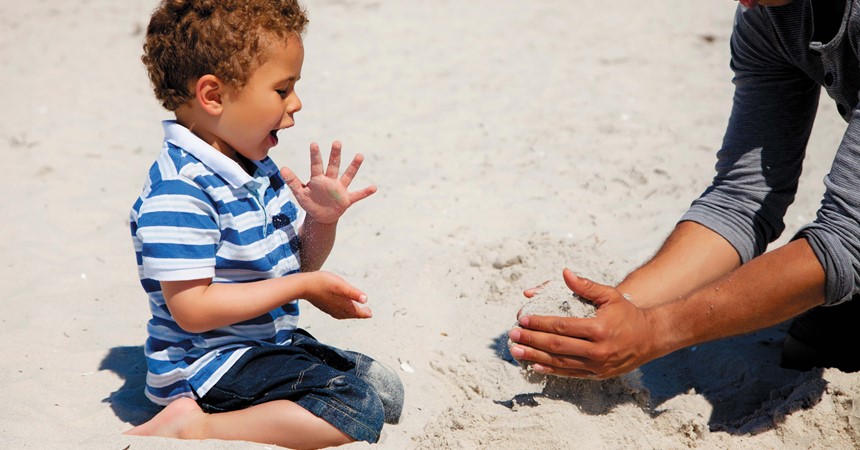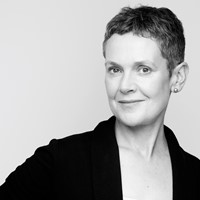I wanted my children to have a slow childhood. I wanted them to experience the world from a deeply rooted sense of home. I wanted them to be creative, adventurous and curious. Before the world started making demands I wanted them to have a rounded sense of themselves. I wanted them to build towers from wooden blocks, fly kites, make cubby houses, play tricks, have adventures, tease each other, roll down hills, be tickled, make cakes, get bored, read picture books, ride scooters, draw pictures, climb trees and make sandcastles.
Not least I wanted to do most of these things with them – as did Paul, their father. We both wanted to get something personal out of Alex and Emma’s childhood, and not just chaperone them through it.
This is the story of that childhood, of afternoons spent playing Lego on the bedroom floor, of trips to the park and of DVDs minus commercial television. However, before this comes over as a rosy, have-it-all, guilt-inducing story of family life to make the most relaxed working mother seethe, there was always one hitch. Which is that throughout Alex and Emma’s childhood I never found a work-life balance. I’ve never reconciled my personal ambitions with love for family. They were always chalk and cheese.
Thankfully what I have found is a small still voice that guides me through family life. Not least I’ve found a grace, a pointed vulnerability, that has deepened my appreciation of life as a whole. This may not sound like much on paper – my pregnant self might have sniffed – however now that my children are finishing school, and I’ve stepped into middle age, this grace feels precious, earned even.
Throughout my twenties I read and taught a lot of Virginia Woolf’s work. Though I read her less now, I’m still touched by To the Lighthouse, in which Virginia Woolf reflects on her upbringing through recalling family holidays by the sea. On first reading this novel I assumed that it was about the passage of time. It was about the way that life happens to you, rather than the other way round. I felt convinced that Mrs Ramsey, the motherly central figure, was nostalgic. She harked back to a time when it was acceptable for a woman to credit her life through family, rather than her own life’s work. She doesn’t even cook the beef dish that she serves up to family and guests, I thought waspishly. She just thanks her cook.
However now that I’m a Mrs Ramsey in my own family, sadly minus help, I respond to her very differently. These days I admire her for being vitally present even after her death. I see her maternal qualities seep into her every relationship, with her children, her husband, her house, her garden and her visitors. Above all I see the way that she holds everything together, enjoying her children and crediting the lives of those around her as deeply valuable. Now that I too care for my family as much as myself, that solidity feels incredibly real.
While my children haven’t read To the Lighthouse, in their minds I’m Mrs Ramsey. This is no mistake that they’ve made. Over the years I’ve let them take possession of me, encouraged it even. I’ve wanted them to feel that I’m there for them no matter what. I’ve wanted them to take me for granted. Not because I’ve wanted them to become petty tyrants, but because by letting them lean on me while they were young, by offering them a slow childhood, I hoped that they’d grow up strong inside and so less in need of me later. Just as my sisters and I once grew out of our mother.
The hints I give at the end of each chapter are the things I learned along the way that might help young women who are wondering what being a mother might be like, as well as women who, already mothers, are immersed in family life and long for a perspective on it, and also women who, their children grown up, wonder what all the fuss was about. And, no less, for all these women’s partners.
Childhood is a place that we all benefit from spending time in, no matter where we are in our lives. Whether we dip in and out, or accompany our own children throughout it, childhood offers a special kind of magic which is always there for us.
This is why I’ve wanted Alex and Emma’s childhood to pass slowly, to savour and draw on it for the rest of my life.
This is an edited excerpt from Tasmanian Helen Hayward's preface to her new book, A Slow Childhood: Notes on thoughtful parenting (Editia). To win a copy, send an envelope with your name and postal address on the back to Aurora Editor, “A Slow Childhood”, PO Box 756 Newcastle 2300.























































































